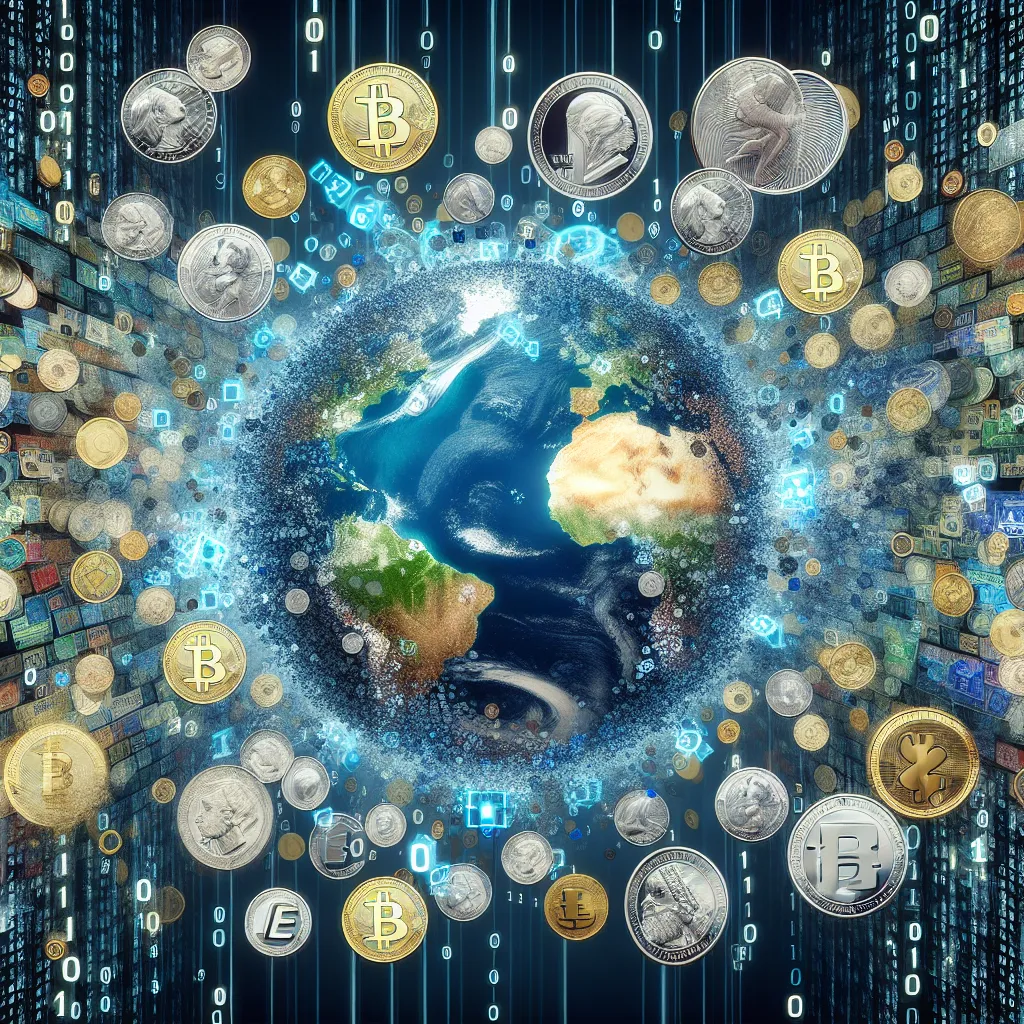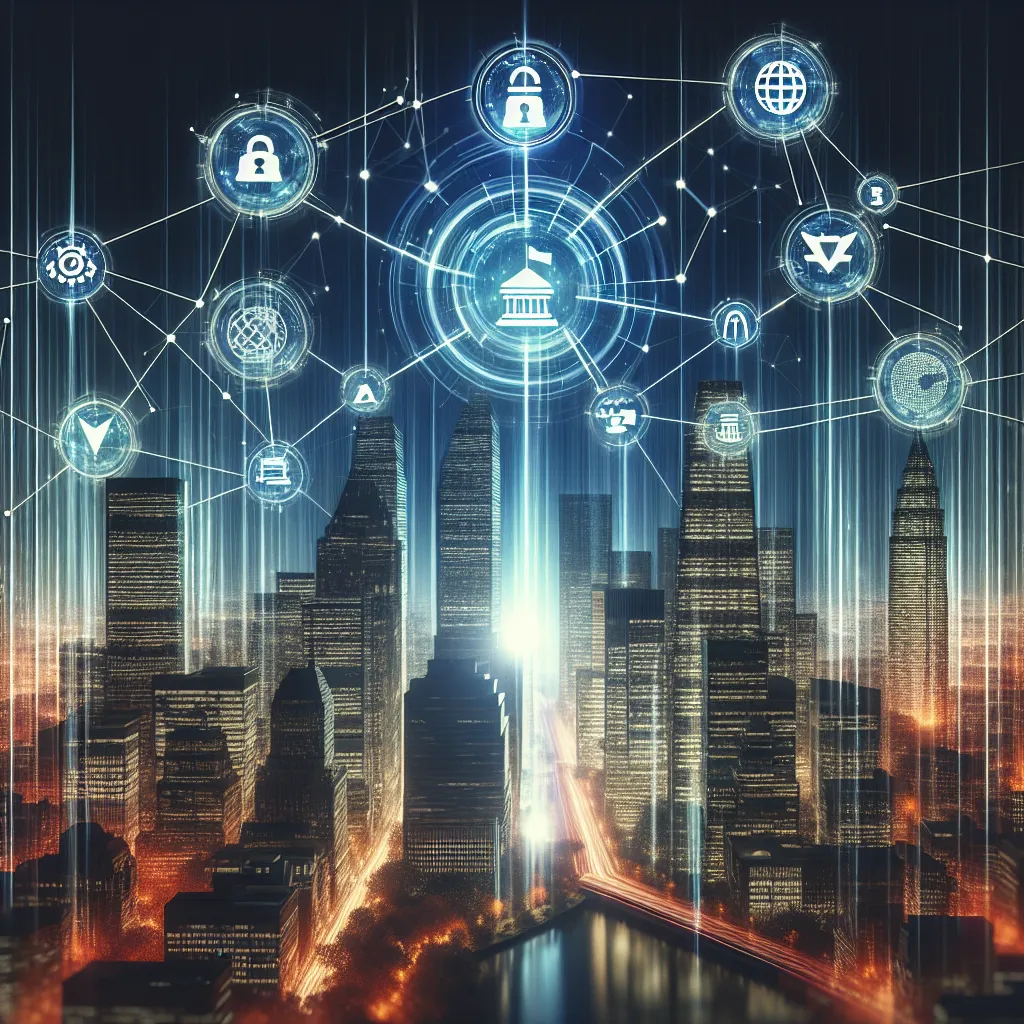Digital currencies have become an increasingly popular topic in IELTS Writing Task 2 exams. As the world becomes more digitalized, the influence of cryptocurrencies and other forms of digital money on the global economy has grown significantly. This essay topic is likely to appear more frequently in future IELTS tests due to its relevance and importance in today’s financial landscape.
Let’s examine a potential IELTS Writing Task 2 question on this subject and analyze sample essays for different band scores.
Some people believe that digital currencies will eventually replace traditional forms of money and revolutionize the global economy. Others argue that digital currencies pose significant risks and should be strictly regulated. Discuss both views and give your own opinion.
Analysis of the Question
This question requires you to:
- Discuss the view that digital currencies will replace traditional money and transform the global economy.
- Discuss the opposing view that digital currencies are risky and need strict regulation.
- Provide your own opinion on the matter.
Remember to address all parts of the question and provide relevant examples to support your arguments.
 Digital Currency Impact on Global Economy
Digital Currency Impact on Global Economy
Sample Essay 1 (Band 8-9)
The rapid advancement of technology has led to the emergence of digital currencies, sparking a debate about their potential to revolutionize the global financial system. While some believe these cryptocurrencies will eventually supplant traditional forms of money, others argue for strict regulation due to perceived risks. This essay will examine both perspectives before presenting my own viewpoint.
Proponents of digital currencies argue that they offer numerous advantages over conventional money. Firstly, cryptocurrencies enable faster and cheaper international transactions, eliminating the need for intermediaries and reducing costs. This could significantly benefit global trade and remittances, particularly for developing countries. Moreover, blockchain technology, which underpins most digital currencies, provides enhanced security and transparency, potentially reducing fraud and corruption in financial systems. These features, combined with the decentralized nature of many cryptocurrencies, could lead to a more inclusive and efficient global economy.
On the other hand, skeptics raise valid concerns about the risks associated with digital currencies. The high volatility of cryptocurrencies, exemplified by Bitcoin’s dramatic price fluctuations, makes them unreliable as a store of value or medium of exchange. This instability could have severe consequences if digital currencies were to become a dominant form of money. Additionally, the anonymity provided by some cryptocurrencies has made them attractive for illicit activities, such as money laundering and tax evasion. These issues have led many to call for strict regulation to protect consumers and maintain financial stability.
In my opinion, while digital currencies have the potential to bring significant benefits to the global economy, a balanced approach is necessary. Complete replacement of traditional currencies seems unlikely in the near future, but the integration of digital currencies into existing financial systems could offer the best of both worlds. Governments and financial institutions should work together to develop regulatory frameworks that foster innovation while mitigating risks. This could involve creating central bank digital currencies (CBDCs) that combine the advantages of cryptocurrencies with the stability and backing of traditional fiat money.
In conclusion, the impact of digital currencies on the global economy is likely to be substantial, but it may not necessarily involve a complete revolution. A carefully managed transition that incorporates the strengths of both digital and traditional currencies could lead to a more efficient, inclusive, and secure global financial system.
(Word count: 377)
Explanation of Band 8-9 Score
This essay demonstrates the characteristics of a high-scoring IELTS Writing Task 2 response:
-
Task Achievement: The essay fully addresses all parts of the task, discussing both views and providing a clear personal opinion.
-
Coherence and Cohesion: The essay is well-organized with clear paragraphing and effective use of cohesive devices.
-
Lexical Resource: A wide range of vocabulary is used accurately and appropriately, with sophisticated words and phrases (e.g., “underpins,” “decentralized nature,” “illicit activities”).
-
Grammatical Range and Accuracy: The essay uses a variety of complex structures accurately, with only minor errors.
-
Development of Ideas: Each main point is well-developed with relevant examples and explanations.
Sample Essay 2 (Band 6-7)
Digital currencies have become more popular in recent years, and people have different opinions about their impact on the global economy. Some think they will replace traditional money, while others believe they are risky and need strict rules. This essay will discuss both views and give my opinion.
Those who support digital currencies say they have many benefits. First, they make it easier and cheaper to send money around the world. This is good for international business and for people who want to send money to their families in other countries. Also, digital currencies use special technology that makes them more secure and harder to fake than regular money. This could help reduce fraud and make the financial system more trustworthy.
However, there are also reasons to be careful about digital currencies. One big problem is that their value can change a lot in a short time. For example, Bitcoin’s price has gone up and down dramatically, which makes it hard to use as regular money. Another issue is that some criminals use digital currencies for illegal activities because they can be anonymous. This is why many people think governments should make strict rules for digital currencies.
In my opinion, digital currencies have both good and bad points. I don’t think they will completely replace traditional money soon, but they could be used alongside it. Governments should find a way to use the good parts of digital currencies while controlling the risks. This might mean creating new types of digital money that are more stable and easier to regulate.
To conclude, digital currencies will probably have a big effect on the global economy, but it’s important to be careful and think about both the benefits and the risks. A balanced approach that combines new technology with sensible rules could help improve the world’s financial systems.
(Word count: 309)
Explanation of Band 6-7 Score
This essay demonstrates the characteristics of a mid-range IELTS Writing Task 2 response:
-
Task Achievement: The essay addresses all parts of the task, but the ideas could be more fully developed.
-
Coherence and Cohesion: The essay is generally well-organized, but the use of cohesive devices is less sophisticated than in the Band 8-9 essay.
-
Lexical Resource: The vocabulary used is appropriate but less varied and sophisticated compared to the higher band essay.
-
Grammatical Range and Accuracy: The essay uses a mix of simple and complex sentences with generally good accuracy, but there is less variety in structure.
-
Development of Ideas: Main points are supported with examples, but they could be more detailed and specific.
Key Vocabulary to Remember
-
Cryptocurrency (noun) /ˌkrɪptəʊˈkʌrənsi/ – A digital or virtual currency that uses cryptography for security.
-
Blockchain (noun) /ˈblɒktʃeɪn/ – A system of recording information in a way that makes it difficult or impossible to change, hack, or cheat the system.
-
Volatility (noun) /ˌvɒləˈtɪləti/ – The tendency to change quickly and unpredictably, especially for the worse.
-
Remittance (noun) /rɪˈmɪtns/ – A sum of money sent in payment or as a gift.
-
Decentralized (adjective) /diːˈsentrəlaɪzd/ – Controlled by several local offices or authorities rather than one single one.
-
Fiat money (noun) /ˈfiːæt ˈmʌni/ – Currency that a government has declared to be legal tender, but is not backed by a physical commodity.
-
Intermediary (noun) /ˌɪntəˈmiːdiəri/ – A person or organization that acts as a link between people in order to try and bring about an agreement.
-
Anonymity (noun) /ˌænəˈnɪməti/ – The condition of being anonymous, or unknown.
-
Regulation (noun) /ˌreɡjʊˈleɪʃn/ – A rule or directive made and maintained by an authority.
-
Innovation (noun) /ˌɪnəˈveɪʃn/ – The action or process of innovating, introducing new ideas, devices, or methods.
Conclusion
The impact of digital currencies on the global economy is a complex and evolving topic that is likely to appear in future IELTS Writing Task 2 exams. To prepare for this and similar topics, practice writing essays that discuss multiple perspectives and provide a balanced opinion. Some potential related topics you might encounter include:
- The role of central banks in regulating digital currencies
- The environmental impact of cryptocurrency mining
- The potential of digital currencies to promote financial inclusion in developing countries
- The challenges of taxing cryptocurrency transactions
Remember to use a range of vocabulary and grammatical structures in your essays, and always support your arguments with relevant examples. Feel free to practice by writing your own essay on this topic and sharing it in the comments section for feedback and discussion. This active practice is an excellent way to improve your IELTS Writing skills and prepare for the exam.


